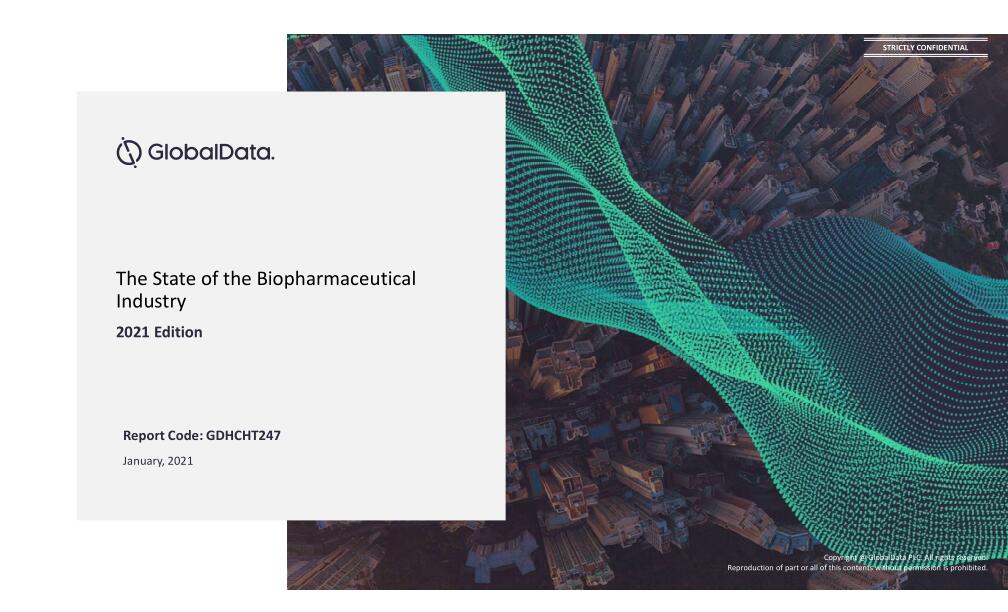
Seattle-based pre-clinical biotech Umoja Biopharma aims to revolutionise immunotherapy by retooling the patient’s immune system in vivo. Based on the pioneering work of Seattle Children’s Research Institute and Purdue University, Umoja’s approach leverages a range of synergistic innovative technologies to develop scalable, next-generation cancer immunotherapies.
Starting with VivoVec, this acts in vivo in the lymphatic system to generate cancer-fighting cells, called VivoCAR-T cells. These are genetically engineered using Umoja’s RACR/CAR technology to create the right receptor payload for each individual patient. Finally, Umoja uses its platform to tag cancer cells as targets for VivoCAR-T cells, thereby enabling a targeted immunotherapy against those tumour cells. This technology also targets the stromal elements of tumours that often allow them to avoid the tumour’s natural defences.
A few months after closing a $53m Series A round, which will help to advance its platforms and therapeutic programmes, in late January Umoja announced it had appointed veteran life sciences investor and banker Dr Robert Glassman to its board of directors.
After starting out as a scientist, Glassman began his finance career at McKinsey, before becoming an investment banker first for Merrill Lynch and then at Credit Suisse. He has also served as a partner at healthcare investment fund OrbiMed. Over the years Glassman has served on numerous boards and now adds Umoja to the list.

Umoja co-founder and CEO Andy Scharenberg notes: “If you look at the where the company is positioned right now and our stage of growth, having somebody like Rob to help us navigate the capital markets is just a huge positive for us. It was an easy decision to try to get him to be a part of the Umoja story.”
How well do you really know your competitors?
Access the most comprehensive Company Profiles on the market, powered by GlobalData. Save hours of research. Gain competitive edge.

Thank you!
Your download email will arrive shortly
Not ready to buy yet? Download a free sample
We are confident about the unique quality of our Company Profiles. However, we want you to make the most beneficial decision for your business, so we offer a free sample that you can download by submitting the below form
By GlobalDataGlassman explains his decision to Umoja’s board, and discusses lessons from a distinguished career that has bridged medicine and investment.
Allie Nawrat: Can you give me an overview of your background in medicine and investment?
Robert Glassman: I was one of the first trained physician scientists to traverse to what used to be called ‘the dark side’ [in moving from] medicine to business; now it is very common.
After graduating Harvard Medical School, I began my career initially with an eagerness to make a difference through a combination of clinical care and science. However, I was a klutz in the lab and became anxious about making it my career.
By happenstance, I was looking at an issue of the New England Journal of Medicine in the lab one day and ran across an advertisement from McKinsey and Company looking for MDs and PhDs who liked problem solving. I had no idea what McKinsey was; I was completely ensconced in medicine and science and never paid attention to anything outside of it. But I asked my wife at that time, who was an MBA, and she said it’s like the Massachusetts General Hospital for business school graduates. I like prestige so I decided to apply and that led to my being offered a spot, which I took, perhaps the most refreshingly risky move in my life.
Initially, I thought I’d run a science institute, a hospital or a medical school and make a difference in a different way from being a physician-scientist. But the jobs for which I anticipated being recruited did not come my way.
Instead, I switched paths, leaving consulting initially for private equity and then mostly investment banking. I spent most of my career in banking at Merrill Lynch and then at CS [Credit Suisse] towards the end. And finally, I returned to be the only venture partner in public equity at OrbiMed – maybe the only venture partner in public equity in the industry. This was a role, along with being on biotechnology company boards, that I think aligns most with my skill set.
AN: What are the benefits to being an investor with a background in medicine?
RG: I spent most of my financial career as an investment banker and my colleagues referred to me not as a banker, but as a “bankalyst” because I refused to just transact. I have a very high ethic and I had not wanted to take companies public that I would not invest in myself; I did not wish to sell witch oil to the public. That actually often works against you since you get paid to do transactions. The analogy is if a builder became a real estate agent, isn’t it better to help understand what he or she is buying?
To review investment ideas fundamentally, one would want to master three realms. One is data, another is the product in the market and the last is the business, financial and capital markets. I think my medical and science background helps me achieve the first two; that my subspecialty in medicine is haematology and oncology was especially fortuitous since it happens to encompass half of all biotech companies. That gives me an additional edge; however, I am well aware that fundamental analysis, especially in irrational markets, does not necessarily make better investments.
AN: What are the main learnings from your career in life science investment?
RG: I’ve been fortunate to engage with some true titans of biotechnology and academia. And I’m hoping to do the same thing with Umoja going forward.
What I’ve been most excited about – and this relates to Umoja – is that I’ve been peripherally instrumental in the development of some key innovations. As a board observer at Syntonix I was a strong force in veering the company to develop recombinant factors eight and nine FC fusion proteins for haemophilia.
I helped, again in a small way, create a paradigm shift in castration-resistant prostate cancer by working with Alan Auerbach, CEO of Cougar Biotechnology at the time, in creating interest among large pharma companies in abiraterone based on single-arm Phase II data. My friend and M&A maven Ivan Farman and I eventually sold this to J&J, which developed the drug properly and changed how we treat prostate cancer. This eventually led to my writing an article, years later, in Nature Reviews with Drs. Marc Kahn and Grace Kim on determining when single arm data is ‘dramatic’.
AN: What attracted you to Umoja? What is so special about its approach to immunotherapy?
RG: This is one of the most exciting things I think I’ll be doing over the next five years. Umoja’s approach to tackling cancer is truly unique and differentiated; I am saying that as an oncologist, as an investor and as a former banker.
When CAR-T cells [first] came about, I remember speaking to Manny Lichtman, who was the first CEO of the Novartis CAR-T programme, who said this is going to be the most exciting thing he will ever do. It really created efficacy levels, specifically in haematology, that had never been seen. While it’s regarded as an incredibly important therapeutic advance for treating blood cancers, CAR-Ts have really suffered from logistical, patient access, reimbursement, toxicity, solid tumour efficacy and manufacturing challenges, which are collectively limiting its impact.
Unlike current approaches, which are based on largely removing cells from patients, modifying them returning them to patients, Umoja’s technology delivers genetic payloads to T cells directly in the patient, allowing the cells to expand in a graded manner, [which] resembles a natural immune response.
It does not require conditioning and potentially avoids dangerous side effects, like cytokine release syndrome or severe neurotoxicity. It should do this while generating durable targeted responses.
I call [Umoja’s approach] ‘autologous off-the-shelf’; it’s combining the best of both worlds and it is doing so universally. From a technology standpoint in oncology, I think this could be the next major innovation.
I was [also] really attracted to the founders, the management team and the investors. You’re not going to find a more dedicated, ethical, hard-working great team.
AN: How did conversations about you joining Umoja’s board begin?
RG: This actually started simultaneously with my choosing to leave banking and do other things. I was looking to consult and advise, as well as to return to the buy side in some capacity.
Given my background in oncology, that field had to be a key area in my pursuits. However, there are hundreds, maybe thousands, of oncology companies out there and I didn’t want to just do something mundane. If I were to do something at this stage of my life, I wanted it to be important.
So I reached out to Luke Evnin of MPM Capital, whom I regarded as a true visionary, having been attached to some fascinating companies over the years. He put me in touch with Andy [Scharenberg] and Ryan [Crisman] and the conversation sparked my interest. Initially, I felt the platform was almost too good to be true; it solved too many problems at once. So I kept on digging deeper, and I kept on requesting more following up, asking more questions. Finally, I said, these guys know what they’re talking about and this could be huge. I found Andy and Ryan to be great people—brilliant, ethical, and fair.
I don’t think I’ve ever been as honoured and excited to be part of somebody’s mission as I am with Umoja. I hope to be helpful in any way I can. I have combined expertise in haematology and oncology, strategy, data evaluation, trial design, financial analysis and capital markets. I have the knowledge and networks to support the company’s business direction.
AN: What is Umoja’s growth plan over the next few years?
RG: This is going to potentially be the next stage in a major breakthrough in cancer.
We are going to be establishing some clinical data that support the core technologies in a diligent and disciplined way. This is for the patient; a lot of people start companies and make a lot of money, but it is actually only incremental value that is being added. We are really trying to change the world here and I want to get a little piece of the pie. I hope George Clooney plays me in the movie someday.





